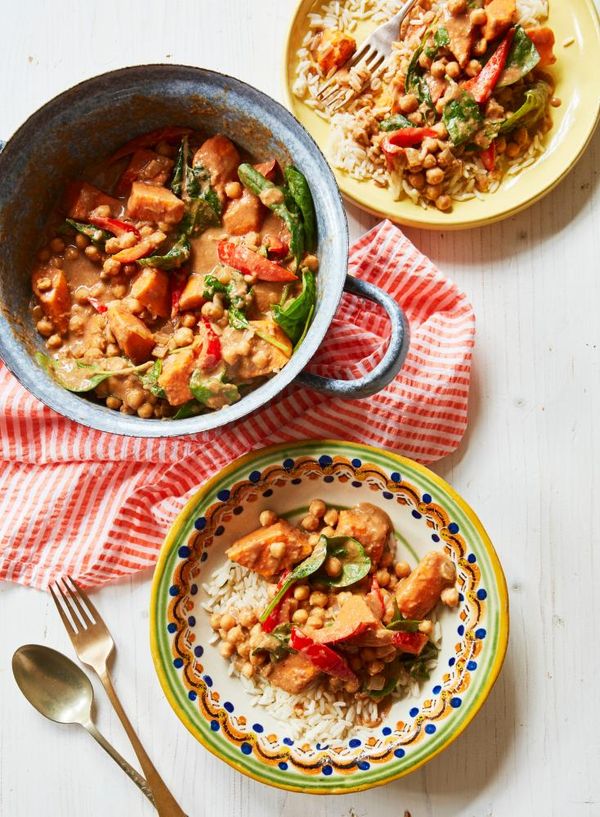
There was a house on Cassland Road, east London, that would produce the most fantastic cooking smells. This is more than two decades ago now, when I would pass the house once or twice a week, usually on my way to catch the bus. It didn’t matter what time it was – early morning, late afternoon or evening – evidence of something baking, simmering or roasting was almost always drifting through the kitchen window, over the wall and across the pavement. What made the situation even more intriguing, (and slightly Roald Dahl) was that I never saw anyone at the window, or going in or out. Who was responsible? And why? Did they have a large family, lots of friends, or run a small catering company? Were they happy cooking, or exhausted, or both? Whatever the reason, their repertoire was wonderful, and the smell of fruit cakes, things covered in pastry, burnt sugar, rice and peas, full roast dinners and even fuller curries circled like low-flying aircraft before being whisked away on the east London breeze.
Twenty years later in Rome, the smell of burnt jam and frying chicken brought back memories of Cassland Road. I was cooking in my dressing gown at 9am, an attempt to beat the heat and stickiness that moves in by mid-morning, a state not helped by watermelon, which turns every surface into adhesive. The burnt jam had leaked out of a tart, and the chicken was for this week’s recipe: minestrone estivo freddo, or cold summer minestrone.
The name minestra comes from a verb for distributing – minestrare or somministrare – so a dish that needs spooning from a large dish into smaller ones. The suffix – one (or oni) – denotes largeness, so a minestrone is a big soup. Of the countless versions from every region, this one from Milan is a particular favourite, and a delight to make. The first step is frying diced chicken, then, just before pulling it off the heat, adding minced garlic, rosemary, salt and pepper. This delicious-smelling mix then rests while you make an onion, potato, courgette, bean and red pepper soup, cook rice in it, then add some cooked beans and the chicken, as well as any juices collected on the plate, and then you leave the minestrone to rest.
The rest is vital, by the way – it needs at least 15 minutes and up to a few hours, so the rice can swell and the flavours settle. At this time of year, there is no risk of resting food going cold, which is also why “room temperature” or “tepid” are better descriptors than “cold”, because that is how it is eaten. Some recipes suggest turning out the soup into a dish, or sticking spoons upright in it. This version is soft, however, even at room temperature, so it’s best served straight from the pan or from a tureen. And, of course, you can reheat if you want to, which means the scent will circle around the kitchen, while we hope for a breeze.
Summer minestrone with rice
Serves 4-6
Olive oil
200g boneless and skinless chicken breast, diced
1 small sprig rosemary, minced
1 garlic clove, peeled and minced
Salt and black pepper
2 onions, peeled and sliced
150g potatoes, peeled and diced
150g courgettes, trimmed and diced
150g red pepper, diced
150g green beans, trimmed and cut in 3cm lengths
180g arborio or carnaroli rice
200g cooked cannellini beans
1 handful basil leaves, torn
In a heavy-based pan or casserole, warm two teaspoons of the oil, then fry the chicken until it’s cooked through. In the last seconds of cooking, stir in the rosemary and garlic, and season to taste, then take off the heat, tip on to a plate and set aside.
In the same pan, gently fry the onion and a pinch of salt in six tablespoons of oil, until they start to turn soft and translucent. Add the potato, courgettes, peppers, green beans and a litre and a half of water. Bring to a boil, then turn down to a simmer and cook for 20 minutes.
Add the rice and raise the heat slightly so the soup simmers in a lively way for another 10 minutes, then, in the last few seconds, return the chicken (and any resting juices) to the pot and stir in the cannellini beans. Pull off the heat, add a handful of torn-up basil, season again, if you think it needs it, and leave to sit and rest for at least 15 minutes.










